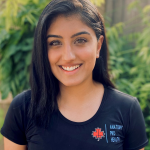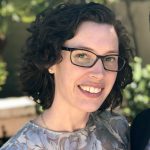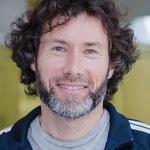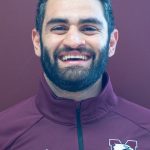We offer graduate students original investigations (MA, MSc, PhD) and advanced study (MKin) in biological, behavioural, and socio-cultural research in Kinesiology. We are proud to be part of a leading global university that is committed to providing an exceptional learning environment and to fostering global citizenship, a civil and sustainable society, and outstanding research.
The School of Kinesiology offers graduate students original research investigations (MA, MSc, PhD) and advanced study (MKin) in biological, behavioural, socio-cultural, coaching science and clinical kinesiology. Students entering the MA program are normally expected to have a background in social sciences, while students applying to the MSc program are expected to have a background in the natural or health sciences. Potential MKin students are required to have a BKin or its equivalent (BA or BSc in a field related to kinesiology).
The School has excellent research facilities and graduate students work alongside some of the top researchers in the field of Kinesiology. The MA, MSc and PhD programs follow a mentorship model and admission requires a faculty member to agree to act as a research supervisor. Applicants meeting the minimum eligibility requirements are forwarded to potential supervisors identified by the applicant, provided that they have already confirmed the proposed faculty member’s interest and availability before proceeding with the formal application procedure. The recommendation for admission is made by individual faculty members and no student is admitted to these research programs without a supervisor being assigned at the time of admission.
We also have a program for performance and coaching science and clinical kinesiology. If you are interested in this field, the degree path is the non-thesis MKin degree. Information on the program structure is available in the Masters Programs.
Flyer: View our latest updates in MKIN
For questions regarding the Kinesiology graduate programs please contact the KIN Graduate Program Assistant:
Phone: 604 822 4641
Fax: 604 822 6842
Email: kin.gradsec@ubc.ca
Masters Program
Kinesiology offers 4 different Masters Degree options:
Master of Arts in Kinesiology
The Master of Arts in Kinesiology (MA) is a thesis-based degree which provides advanced education and research training in the social, behavioural, and/or managerial sciences. In particular, students pursue studies in areas such as exercise and sport psychology, the sociology of health, physical activity, and/or sport, and sport history. The MA program affords students an opportunity to learn in a vibrant, supportive, and multidisciplinary research environment. Students work closely with individual faculty members who provide exceptional training and focused supervision using a mentorship model. The MA program prepares graduates for a broad range of careers. Our former students have gone on to pursue training in doctoral and post-doctoral degrees as well as to pursue careers in health promotion, governmental and non-governmental work, research, and teaching.
Master of Science in Kinesiology
The Master of Science in Kinesiology (MSc) is a thesis-based degree. Areas of study can include topics broadly related to the natural health and physical sciences. Graduate students are drawn to the School to work with specific research faculty members and benefit from their expertise in specific content areas. The MSc program operates using a mentor model. The benefits of a mentor model are numerous including clarification of research and other funding support at time of application and focused supervision from the time of registration. The MSc program prepares graduates for a broad range of careers. Former MSc students have pursued additional training including doctoral and post-doctoral degrees. Many former Kinesiology graduates have become successful academics. Other students have pursued careers in Medicine, Physical Therapy, industry, and governmental and non-governmental work.
Master of Kinesiology
The Master of Kinesiology (MKin) is a non-thesis, 30-credit course-based degree with broad course offerings, field experiences and knowledge from leading practical and theory experts. We are transitioning to a two stream model with core and recommended course offerings associated with each: Performance and Coaching Sciences and Clinical Kinesiology. The expected time to completion is 3-4 terms, with the possibility of completing the program in one year (3 terms).
* A thesis is not part of this program, distinguishing the MKin from the MA/MSc programs.
The MKin program prepares students for employment in coaching and sport-science support, such as strength and conditioning, at various levels (high school, club, varsity, elite/professional sports) and/or for professional leadership and work across a range of health settings including clinical/community/corporate health and exercise promotion and chronic disease prevention programs. For over two decades, the Coaching Science program has supported the coaching careers of many different sport coaches by enhancing their theoretical knowledge and practical skill development. We are now also offering courses related to Clinical Kinesiology to meet the growing needs of exercise specialists in various health and community arenas, which will be driven by knowledge related to exercise testing and prescription, nutrition, injury prevention and behaviour change.
No supervisor is required for admission to the MKin program. However, opportunities to work directly with a faculty supervisor will be available through field placements or directed (research) studies. Please see the Mkin course planning guide and Mkin course template in the downloadable forms tab for more information.
Master of High Performance Coaching & Technical Leadership (MHPCTL)
** Students interested in the MHPCTL must apply to the HPCTL Graduate Certificate and successfully complete this program before being recommended for admission to the MHPCTL program. For more information and how to apply to the HPCTL Graduate Certificate, please see: Graduate Certificate in High Performance Coaching & Technical Leadership (HPC & TL)
Description of the Program
The Master of High Performance Coaching and Technical Leadership is a two to three year, 30 credit specialized program for experienced sport coaches and technical leaders who are looking to advance in their careers and engage in professional development. Through a partnership with the leading national agencies in high performance sport (Own The Podium (OTP), Coaching Association of Canada (CAC), Canadian Sport Institute (CSI) and National Sport Organizations) an exemplary program will be offered using a blended delivery model.
The MHPCTL consists of the 1 year program HPCTL Graduate Certificate. Students who successfully complete the HPCTL program may be recommended for admission into the MHPCTL program. Both the HPCTL and MHPCTL are offered on a part-time basis and delivered online.
Aims/goals and objectives:
1. To develop coaches with the competence to contribute to medal performances in international competition at the developmental level.
2. To develop technical leaders with the competence to collaborate in strategic and operational leadership of a high performance sport program.
Delivery methods and duration of program
The program will include two one-week face-to-face residential periods: one at the start of year 1 and one at the start of year 2. All courses will primarily be delivered asynchronously online with added synchronous online classes scheduled throughout the fall and winter terms.
Target Learners
The target learners are coaches working with athletes on the “Podium Pathway”, that is, those affiliated with provincial and national sport organizations, Provincial/Canada Games, Sport Institutes, elite clubs, and Canadian Inter-university Sport programs. These coaches are working in full- or part-time coaching positions and are likely to focus on self-directed Professional Development that includes:
- A highly flexible approach to delivery to fit with occupational demands.
- Opportunities to transition to a future technical leadership role.
- Ability to expand on current practice by having access to world leading research and innovation in high performance sport.
Also targeted for the program are technical sport leaders such as high performance directors, current technical leaders, managers, executive directors and coordinators at the national and provincial levels and high performance coaches not currently working with high performance athletes. Other candidates for the program include retiring high performance athletes. The program provides them the opportunity to move into high performance coaching after being a successful athlete.
Financial Assistance
Please see "Awards and Funding" tab for more info.
Overview of the Master's Programs
| Degree | Master of Arts | Master of Science | Master of Kinesiology | Master of High Performance Coaching & Technical Leadership (MHPCTL) |
|---|---|---|---|---|
| Orientation | Thesis Degree Research Orientation | Course-based, Non-Thesis Degree | Course-based, Non-Thesis Degree, (ONLINE PROGRAM with residential components) |
|
| Areas of Study | Socio-Managerial Behavioural |
Natural/Physical Science Behavioural |
Performance & Coaching Sciences and Clinical Kinesiology | Coaching Science |
| Admission Requirements for MA, MSc |
|
|||
| Admission Requirements for Mkin |
|
|||
| Admission Requirements (Applicable to MHPCTL degree program only) |
In addition to the above, applicants usually have the following requirements:
Special admission into graduate studies will be considered for candidates who have demonstrated extraordinary leadership potential and impact in their coaching careers, but may lack formal academic (undergraduate) training or credential. These candidates will need to demonstrate the drive to excel and the intellectual capability required to succeed, where ability to progress in the program will be assessed within the Graduate Certificate for High Performance Coaching & Technical Leadership. |
|||
| Degree | Master of Arts and Master of Science | Master of Kinesiology | Master of High Performance Coaching Technical Leadership |
|---|---|---|---|
| Thesis or Major Paper | KIN 599 – Thesis (12 Credits for students who started their programs prior to September 2019)KIN 599 - Thesis (18 Credits for students starting September 2019) | No research thesis or major paper presentation is required. KIN 595 (3 credits) is an option for students who may choose to present a major paper. KIN 530 Directed Studies may also be an option for students to study a topic of their choice in consultation with their Graduate Advisor. | KIN 596 (6 Credits) |
| Course Work | A total of 12 course credits is required, which may include a combination of graduate and undergraduate course credits. See note below for undergraduate coursework.12 course credits + 18 credits for KIN 599 = 30 credits total*Students may choose their courses in consultation with their Grad Advisor*A maximum of 1 Kin 530 Directed Studies is allowed in MA and MSc program. | A total of 30 credits required. The 30 credits may be a combination of both graduate and undergraduate coursework. See note below for undergraduate coursework.*Students may choose their courses in consultation with the Mkin Grad Advisor*See Mkin Potential Course Templates for samples of course offerings that Mkin students may take: |
KIN 515, KIN 585, KIN 586, KIN 598, KIN 516, KIN 517, KIN 530, KIN 572 (3 credits each)*Only coursework listed in the program will be counted towards the MHPCTL |
| Required KIN Course(1 research methods course required for all programs) | KIN 570 or KIN 571 (3 credits)(or an approved alternative) | KIN 572 - Research Methods for Sport & Health Sciences (3 credits). Mkin students may also choose to take Kin 570, Kin 571, or an approved alternative for their research methods course. | KIN 572 - Research Methods for Sport & Health Sciences (3 credits) |
| Undergraduate Course Work |
A maximum of 6 course credits related to the student’s program of study may be taken at the 300/400 undergraduate level for MKin degrees. Students enrolled in the MA or MSc may have a maximum of 3 credits at the 300/400 undergraduate level count towards their program. **UNDERGRADUATE COURSES AT THE 300/400 LEVEL IS OPTIONAL** | Undergraduate courses are not allowed to be counted towards MHPCTL program. | |
| TOTAL CREDITS | MINIMUM OF 30 CREDITS IN TOTAL REQUIRED FOR MA/MSc/Mkin/MHPCTL |
||
The required course work for MA/MSc takes about two terms to complete with a minimum additional year (three terms) to complete the research thesis. The required course work for MKin takes about three to four terms (1 - 1.5 years) of study to complete. Students are expected to complete all requirements for the Master's degree within three academic years of full-time study.
MA/MSc: The average program duration is 2 - 3 years (full-time program)
MKin: The average program duration is 1 - 1.5 years (full-time program)
MHPCTL: The average program duration is 3 - 3.5 years (part-time program)
PhD: The average program duration is 4 - 6 years (full-time program)
The UBC Calendar provides information regarding current tuition fees for graduate programs. Masters students are assessed fees as full-time students and charged on a term basis plus student fees.
All graduate programs (Master and PhD) are assessed tuition fees per term, and not by the number of course(s). There are 3 terms per year.
Students pursuing part-time study are ineligible to receive government loans, interest-free status and University Fellowships or Scholarships. Students holding UBC scholarships will have their tuition fees deducted directly from scholarship payments.
Mkin Quick Facts and Tuition Fees
MA Quick Facts and Tuition Fees
MSc Quick Facts and Tuition Fees
For a list of graduate courses that may be offered by the School see the course description page.
For current graduate course offerings, please see course scheduling.
Doctoral Program
The PhD degree in Kinesiology is a research oriented thesis-based degree. The areas of research include the broad domain of physiological, biomechanical, behavioural and psychosocial factors influencing human movement and the analysis of social and cultural transformations in the role and functions of physical activity. Entry requirements : a thesis-based master’s degree in Human Kinetics, Physical Education, Kinesiology, or other related fields of study with a minimum of 76% (B+) overall from the Master’s degree. *For International Students, the admission criteria will vary for different countries. Therefore, select the country your academic credentials were acquired from on the international MAR page to see the admission criteria.
The PhD program is tailored to individual student's needs. The student’s supervisory committee may recommend course work, and the amount to be taken by the student in relation to the student’s background, and to the requirements which are appropriate to the PhD level in the chosen major field of study. All students must have an individual faculty member who agrees, during the application process, to serve as the student's advisor. No student is admitted to the program without an advisor being assigned at the time of admission.
What makes this program unique?
The PhD in Kinesiology program affords students an opportunity to learn in a vibrant, supportive, and multidisciplinary research environment. Graduate students are drawn to the School to work with specific research faculty members and benefit from their expertise in specific content areas. Students work closely with individual faculty members who provide exceptional training and focused supervision using a mentorship model. The School offers competitive financial packages to highly qualified students in the form of teaching assistantships and entrance scholarships. Individual faculty members can “top up” a financial package from external grant sources to assist with recruitment of exceptional students.
Career Options
The PhD program prepares graduates for a broad range of careers. Former PhD students have pursued additional training including post-doctoral degrees as well as careers in health promotion, governmental and non-governmental work, research, and teaching. Many former Kinesiology graduates have become successful academics.
The program is governed by the general requirements for the PhD degree as laid out by the Faculty of Graduate Studies’ policies and procedures. In addition to the Faculty of Graduate Studies' provisions, the School of Kinesiology normally requires a thesis-based master's degree in Human Kinetics, Physical Education, Kinesiology, or other related fields of study, with a minimum of 76% (B+) overall for admission.
All students must have an individual faculty member who agrees during the application process to serve as the student’s supervisor. Select a potential supervisor by reviewing the School’s faculty and their research interests in the "Potential Supervisors" tab. Please contact potential supervisor by filling in the Supervision Enquiry form (type "Kinesiology" in the program field and click on faculty profile) to include a brief outline of your academic background, why you are interested in working with the faculty member, and what experience you could bring to the department. This form provides important background information and will help determine your suitability in a research partnership. No student will be admitted to the program without a supervisor being assigned at the time of admission. Confirm the proposed faculty member’s interest and availability before proceeding with the formal application procedure.
Applicants will be evaluated for acceptance using the following criteria:
- Scholastic Performance (transcripts)
- Three Letters of Reference
- Statement of Purpose
- CV (Curriculum Vitae)
The applicant's Statement of Purpose is given close consideration by the Selection Committee and should include:
- relevant background and preparation such as previous academic specialization, work and personal experience(s).
- field of emphasis, specific study interests, and type of research being sought should be clearly outlined.
- the Graduate Faculty Supervisor whose research area parallel the applicant's study interests.
- a list of graduate courses the applicant finds interesting and would like to complete (optional). Information on graduate course offerings
Aptitude tests, including the Graduate Record Exam or the Miller's Analogy Test are not required, but may be submitted for consideration.
Students are allocated six (6) years from their initial date of registration to complete the entire program. Students are required to complete their Advancement to Candidacy within a period of three (3) years from their initial date of registration. The average program duration is 4 - 6 years (full-time program).
The UBC Calendar provides information regarding current tuition fees for graduate degree programs. Students are assessed fees as full-time students and charged on a term basis plus student fees.
All graduate programs (Masters and PhD) are assessed tuition fees per term, and not by the number of course(s).
PhD Quick Facts and Tuition Fees
Students pursuing part-time study are ineligible to receive government loans, university scholarships, awards or any type of funding such Teaching Assistant and Graduate Research Assistant positions. Students holding UBC scholarships will have their tuition fees deducted directly from scholarship payments.
The Graduate Faculty Supervisor who accepts the applicant as a PhD student will generally act as Chair of the student's supervisory committee, and supervisor of the student’s thesis research. The supervisory committee must be formed as soon as the student commences the program and will consist of at least three (3) members, including the supervisor. The supervisor, and at least one (1) other member, must be belong to the Faculty of Graduate & Postdoctoral Studies. The majority of committee members must be Graduate & Postdoctoral Studies faculty members. The Committee is responsible for guiding the student throughout the student's program.
Supervisory committees will be based upon individual students. For more information please contact Graduate Program Assistant.
The PhD degree in Kinesiology is research oriented. The student's supervisory committee will recommend course work and/or thesis research topic. A program will be designed for each individual to suit their needs, and will be in relation to the student's background, and to the requirements which are appropriate to the PhD level in the chosen major field of study. No coursework is required in the Doctoral program, however, the supervisory committee may recommend course(s) to take.
Students in the program will complete a Comprehensive Examination following the completion of any required course work. The Comprehensive Examination will normally be a two-part examination, which the student's thesis committee will set and judge. The content of the exam will be relevant to the student's general area of study and will include questions covering theory, application, and methodology. Successful completion of the Comprehensive Examination is a prerequisite for the presentation and defence of the formal PhD thesis proposal.
Students normally will be Admitted to Candidacy when they have: (1) completed all required course work; (2) passed the Comprehensive Examination, and (3) had their thesis proposal presented and approved.
An Examining Committee approved by the Dean of the Faculty of Graduate Studies evaluates the PhD student's thesis and meets for a Final Oral Examination of the thesis presentation and defence. Detailed reference information is available from the Faculty of Graduate Studies.
The area of research will embrace the broad domain of physiological, biomechanical, behavioural and psychosocial factors influencing human movement and the analysis of social and cultural transformations in the role and functions of physical activity.
Each student's program of study will be tailored to support the student's experience, background and area of thesis research. The PhD program in Kinesiology is a thesis-based program of study, and as such, is research-driven and not course-driven. Thus, the program for each student will be tailored to that student. For example, a student of biomechanics will have experience in mechanics, physics, mathematics and an understanding of the mechanical features of the human locomotor system. To augment the student's background it may be appropriate to have this student undertake course work within Kinesiology as well as from the broader spectrum of courses in other departments.
Awards, Scholarships & Funding
Minimum Funding for PhD Students
All full-time students who begin a UBC-Vancouver PhD program in September 2018 or later will be provided with a minimum funding package equal to $24,000 for each of the first four years of their PhD. The $24,000 minimum funding does not include tuition or student fees. The funding package may consist of any combination of internal or external awards, teaching-related work, research assistantships, and graduate academic assistantships. The funding package will be offered to all incoming PhD students as part of their admission acceptance.
There are no minimum funding or guaranteed funding offered to Master's students.
Awards totalling approximately $4.3 million per year are provided to recognize the significant contributions of PhD students to the research activities of the university. The awards are available to all new and continuing PhD students, except those who have their tuition paid by a sponsor or who are not assessed tuition (see "Eligiblity" for details).
Award values per PhD student:
- $555 per year for domestic students being assessed continuing tuition fees (year 4 and later)
- $1,215 per year for domestic students being assessed full tuition fees (years 1-3)
- $1,425 per year for international students
See President's Academic Excellence Initiative PhD Award for more information.
**Award values are subject to changes as per G+PS policy.
International Tuition Awards assist international graduate students with their tuition fees if they are registered full-time in research-oriented master’s and doctoral programs. Students in the MKin program are NOT eligible for this award. There are no applications for this award. It is a non-competitive award and is a bursary amount to offset the costs of international tuition fees. International students automatically receive this award every term when they are registered full-time in their program. The current value of this award is $3,200 per year distributed over 3 terms.
Please visit the Faculty of Graduate Studies website for more information about the international tuition award.
The School tries to provide all research based (MA, MSc, PhD) graduate students with partial or full Teaching Assistantships. They are matched to TA positions (courses) based on research interests and past experience. Usually students are able to obtain at least 1 TA position (1 term - 4 months) during the academic year (September to April). They may also be able to obtain 2 TA positions depending on the availability. They may choose the terms they are available to TA - Fall and/or Winter terms. There are limited TA positions in the summer term and most positions are assigned by preference/seniority in accordance to CUPE 116 regulations. The current rate for a Graduate student with less than 2 years experience (4 terms) is $7,205 per term (4 months) and the current rate for a Graduate student with over 2 years experience (5 terms or more) is $7,485 per term (4 months).
GRA positions may be available to students in research-based programs (MA/MSc/PhD), and are provided by faculty supervisors. Students interested in these positions should contact their supervisor directly for these opportunities.
The following awards may be available to incoming graduate students. Applications are adjudicated according to the selection criteria for Doctoral Awards and the selection criteria for Master Awards. See "Award Selection Criteria" below for more details.
Graduate Entrance Awards
Domestic and international applicants admitted to the Mkin, MA, MSc, and PhD programs in the School of Kinesiology are eligible for Entrance Awards funded through the University’s Graduate Support Initiative (GSI). Criteria for the awards are:
- academic excellence (transcripts)
- research potential
- personal characteristics and interpersonal skills
Award amounts may differ from year to year. See "Award Selection Criteria" below for more details.
Deadline: January Admission Application deadline
Annual Value: About $1,000 - $6,000 and may vary each year
Eligibility: All incoming Masters and PhD students (domestic and international)
Application Procedures: All incoming graduate students who have met the January application deadline are automatically considered for these awards. A separate application is not required.
Faculty of Education PhD Awards
The PhD awards are given to outstanding incoming doctoral students by the Faculty of Education.
Deadline: January Admission Application deadline
Annual Value: About $5,000 - $7,000 and may vary each year
Eligibility: All incoming PhD students (domestic and international)
Application Procedures: Applicants are automatically entered for this competition when they applied by the January application deadline and do not need to submit a separate application.
Four-Year Fellowship (4YF) for PhD Students
The Four-Year Fellowship (4YF) provides funding for the top 2 or 3 incoming PhD students in the School each year.
For more information, visit UBC Graduate Studies page: Four Year Doctoral Fellowship (4YF).
Deadline: January Admission Application deadline
Annual Value: $18,200 stipend per year plus tuition for the first four years of PhD program
Eligibility: All incoming PhD students (domestic and international)
Application Procedures: Applicants are automatically entered for this competition when they applied by the January application deadline and do not need to submit a separate application.
Affiliated Awards
The Faculty of Graduate and Postdoctoral Studies offers approximately 50 Affiliated Fellowships each year to meritorious students for full-time study and research leading to a graduate degree. Awards are made on the basis of academic excellence, with applications open to current and prospective full-time UBC graduate students regardless of citizenship or visa status.
Deadline: Usually mid-September for PhD students and December 1 for research-based Masters students
Annual Value: Fellowship values range from $175 to $30,000 (PhD) and $175 to $16,000 (Masters)
Eligibility: Domestic and International research-based Masters and PhD students. Eligible domestic Masters and PhD students must apply for one of the Tri-Agency competition (CIHR, NSERC, SSHRC) and will be automatically entered into the Affiliated awards. No separate application is required for domestic students.
Application Procedures: See Affiliated Doctoral Fellowship and Affiliated Masters Fellowship. Also, more information in the "External Funding" section below.
Indigenous Graduate Fellowships
The University of British Columbia offers multi-year fellowships to Master's and doctoral Indigenous students. Award winners are selected on the basis of academic merit through an annual competition administered by the Faculty of Graduate and Postdoctoral Studies.
Deadline: Usually by the end of January
Annual Value: Each fellowship provides a stipend of $18,200 per year for doctoral students or a stipend of $16,175 per year for Master’s students. Additionally, IGF recipients are eligible to receive tuition funding. Tuition funding will not exceed the current value of standard doctoral or Master's degree tuition fees.
Eligibility: All Indigenous students are eligible to apply, but priority is given to Indigenous students whose traditional territory falls, at least in part, within Canada. This includes Canadian First Nations, Métis or Inuit students and may include Indigenous students from Alaska and other states of the USA. The university may request further information to confirm Indigenous eligibility.
Application Procedures: See Indigenous Graduate Fellowships for more information.
Canada Graduate Scholarships Doctoral (CGS D) Program
The objective of the Canada Graduate Scholarships-Doctoral (CGS D) Program is to promote continued excellence in Canadian research by rewarding and retaining high-calibre doctoral students at Canadian institutions. These scholarships are provided by Canada’s three federal granting agencies (CIHR, NSERC, and SSHRC). These scholarships are available to students who are Canadian citizens or permanent residents. International students are not eligible.
Deadline: Usually mid-September
Annual Value: Scholarship values range from $20,000 to $35,000 per year for 2 to 3 years at the PhD level
Eligibility: Canadian citizens or permanent residents
Application Procedures: Students apply directly to Tri-Agency portal. See new CGS D program page for the harmonized application process and timeline. In addition to the CGS D, each agency has its own doctoral awards. Refer to the appropriate literature for CIHR, NSERC and SSHRC for further details.
Canada Graduate Scholarships Master’s (CGS M) Program
The objective of the Canada Graduate Scholarships-Master's (CGS M) Program is to help develop research skills and assist in the training of highly qualified personnel by supporting students who demonstrate a high standard of achievement in undergraduate and early graduate studies.
Deadline: Usually December 1
Annual Value: one-time $17,500 annual award at the Master's level
Eligibility: Canadian citizens or permanent residents. The School will only review CGSM applications for incoming Masters students who have applied by the January application deadline.
Note: The School may set an earlier admission application deadline for incoming Masters students applying for the CGSM. Please contact Graduate Programs Assistant for more information.
Application Procedures: Students apply directly to Tri-Agency portal. See Canada Graduate Scholarships-Master's (CGS M) Program.
Please note that your admission application will be used by the Graduate Committee to allocate awards and funding. Within your Curriculum Vitae (CV) and personal statement, please include information related to the following award/scholarship criteria:
- Academic excellence
- Leadership, Service and Coaching
- Communication and interpersonal skills
UBC, through the support of its many donors and through funding provided by the provincial and federal governments, offers a wide range of programs to provide financial assistance to students who cannot meet basic educational costs.
Some needs-based funding options available include student loans, bursaries, and work-learn programs.
Additional information is available at the Graduate Student website.
- Can PhD students obtain more than the minimum $24,000 funding package?
Yes, most of our PhD students obtain more than $24,000. On average, most PhD students are able to obtain about $25,000 to $30,000 per year through a combination of awards, TA, and GRA assignments.
- Do Master's students have a minimum or guaranteed funding package?
No, Master's students are not guaranteed any minimum funding. However, they may apply for TA and GRA positions, and are likely to receive at least 1 TA assignment per year. They may also be able to obtain 2 TA positions depending on the availability.
- When will I know if I have received any award funding?
Admission letters for applicants who apply by the January deadline will receive their notices by April 30. This letter will also indicate any award funding that the student will receive.
- Do I need to apply for any of the entrance awards?
No, you do NOT need to provide a separate application for any of our entrance awards such as the Graduate Entrance Awards, Four-Year Fellowships, and Faculty of Education PhD Awards.
Note: Please be aware that your admission applications will be used by the Graduate Committee to allocate award funding. Within your CV and/or personal statement, include information related to the selection criteria for Doctoral or Master awards.
- What if I apply after the January admission application deadline, can I still be considered for awards and Teaching Assistant (TA) positions?
Students must apply by the January admission application deadline in order to be considered for any of the Entrance awards (Graduate Entrance Awards, Four Year Fellowships, PhD awards). Students who apply and are accepted after this deadline will not be offered any entrance awards. However, they may apply for other awards, such as the CGSD or CGSM (external funding), if they are able to meet the application deadline.
Students may be considered for TA assignments if they apply late, provided there are any positions left.
- What awards or funding are available to Mkin students?
Funding for the Mkin students is limited as most financial support are for research-based programs. Mkin students may be eligible for Graduate Entrance Award and TA positions, if they apply by the January admission deadline.
- Are there any other awards or funding available to graduate students?
The Faculty of Graduate Studies has a database of awards that you may search.
Potential Supervisors
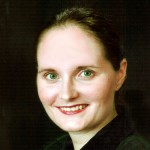
Shannon Bredin
Associate Professor
604–822–8257
shannon.bredin@ubc.ca
Research Areas:
Indigenous Studies in Kinesiology, Leadership Education for Pedagogy & Physical Activity, Psychology of Sport, Physical Activity, Health & Motor Performance,
Systems Biology, Exercise & Health

Maria Gallo
Associate Professor of Teaching
Director, Masters of High Performance Coaching & Technical Leadership Program
604–822–5084
maria.gallo@ubc.ca
Research Areas:
Leadership Education for Pedagogy & Physical Activity
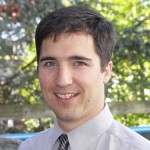
Jean-Sébastien Blouin
Professor
604–827–3372
jsblouin@mail.ubc.ca
Research Areas:
Neuromechanical,
Systems Biology, Exercise & Health

Mark Carpenter
Professor
Associate Director Research
604–822–8614
mark.carpenter@ubc.ca
Research Areas:
Neuromechanical

Romeo Chua
Professor
604–822–1624
romeo.chua@ubc.ca
Research Areas:
Neuromechanical
![]()
Kayla Fewster
Assistant Professor
kayla.fewster@ubc.ca
Research Areas:
Neuromechanical
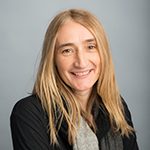
Nicola Hodges
Professor
604–822–5895
nicola.hodges@ubc.ca
Research Areas:
Neuromechanical, Psychology of Sport, Physical Activity, Health & Motor Performance
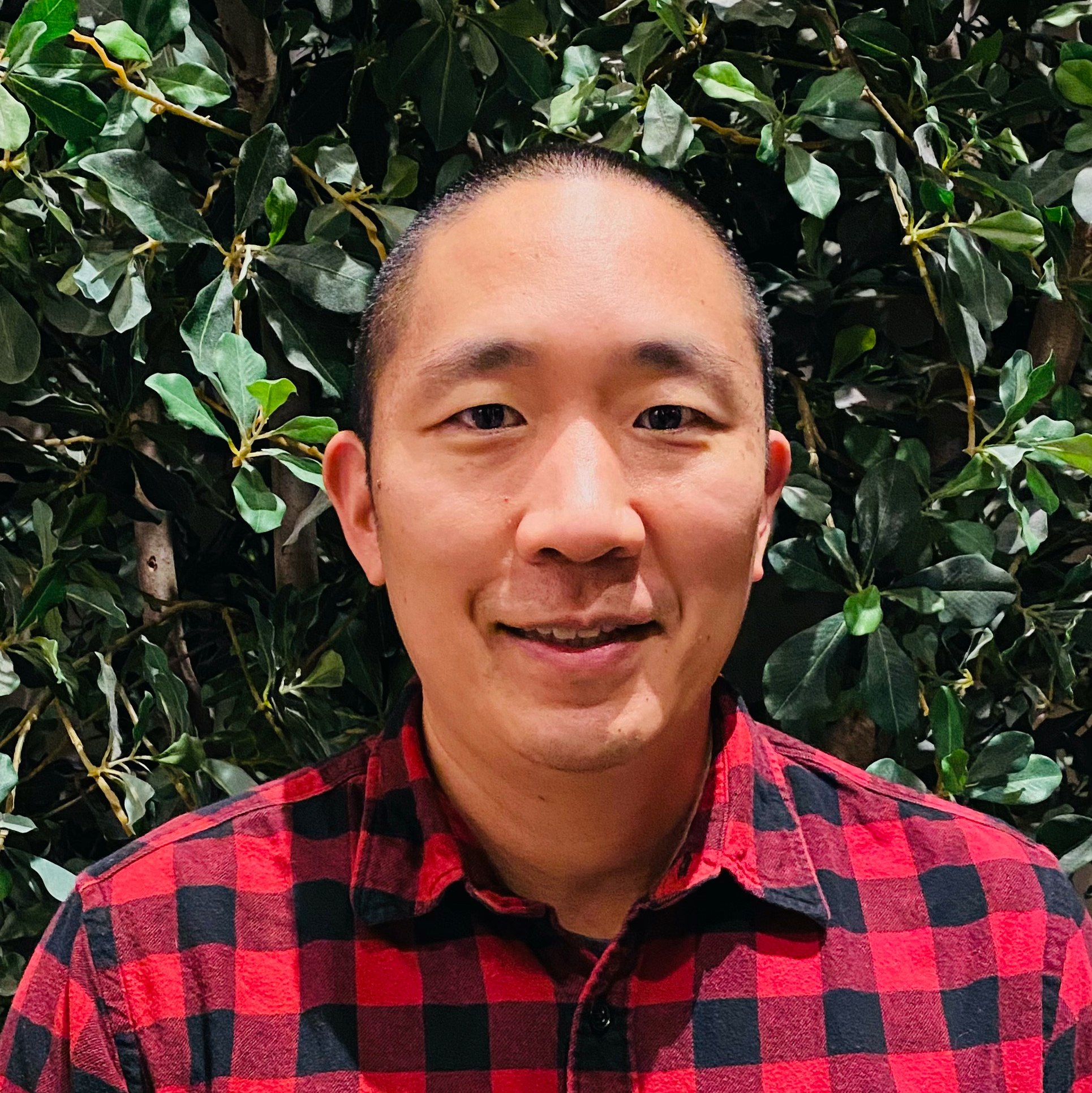

Tania Lam
Professor
604–827–3165
tania.lam@ubc.ca
Research Areas: Neuromechanical, Systems Biology, Exercise & Health

Mark Beauchamp
Professor
604–822–4864
mark.beauchamp@ubc.ca
Research Areas:
Psychology of Sport, Physical Activity, Health & Motor Performance.

Shannon Bredin
Associate Professor
604–822–8257
shannon.bredin@ubc.ca
Research Areas:
Indigenous Studies in Kinesiology, Leadership Education for Pedagogy & Physical Activity, Psychology of Sport, Physical Activity, Health & Motor Performance,
Systems Biology, Exercise & Health

Guy Faulkner
Professor
604–822–2990
guy.faulkner@ubc.ca
Research Areas:
Psychology of Sport, Physical Activity, Health & Motor Performance

Nicola Hodges
Professor
604–822–5895
nicola.hodges@ubc.ca
Research Areas:
Neuromechanical, Psychology of Sport, Physical Activity, Health & Motor Performance
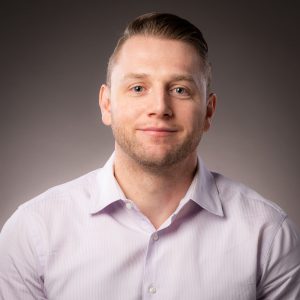
Desmond McEwan
Assistant Professor
604-822-4281
desmond.mcewan@ubc.ca
Research Area: Psychology of Sport, Physical Activity, Health & Motor Performance
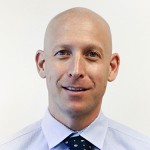
Eli Puterman
Associate Professor
604–822–2854
eli.puterman@ubc.ca
Research Areas:
Psychology of Sport, Physical Activity, Health & Motor Performance, Systems Biology, Exercise & Health
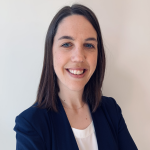
Erica Bennett
Assistant Professor
604–827–3094
erica.bennett@ubc.ca
Research Areas:
Psychology of Sport, Physical Activity, Health & Motor Performance

Andrea Bundon
Assistant Professor
604–822–9168
andrea.bundon@ubc.ca
Research Areas:
Socio-Cultural Studies

Janice Forsyth
Professor
604–822–1332
janice.forsyth@ubc.ca
Research Areas:
Socio-Cultural Studies

Laura Hurd
Professor
604–822–4281
laura.hurd@ubc.ca
Research Areas:
Socio-Cultural Studies

Moss Norman
Assistant Professor
604–827–5786
moss.norman@ubc.ca
Research Areas:
Indigenous Studies in Kinesiology,
Socio-Cultural Studies

Patricia Vertinsky
Professor
Distinguished University Scholar
604–822–6235
patricia.vertinsky@ubc.ca
Research Areas:
History of Physical Culture and Sport,
Socio-Cultural Studies
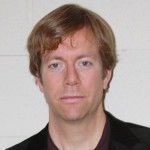
Brian Wilson
Professor
Director of the Centre for Sport and Sustainability (CSS)
604–822–3884
brian.wilson@ubc.ca
Research Areas:
Socio-Cultural Studies
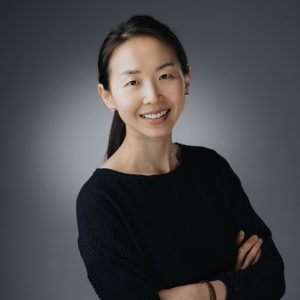
Liv Yoon
Assistant Professor
604–822–5536
liv.yoon@ubc.ca
Research Areas:
Socio-Cultural Studies, Climate change, health and social inequities

Jean-Sébastien Blouin
Professor
604–827–3372
jsblouin@mail.ubc.ca
Research Areas:
Neuromechanical,
Systems Biology, Exercise & Health

Shannon Bredin
Associate Professor
604–822–8257
shannon.bredin@ubc.ca
Research Areas:
Indigenous Studies in Kinesiology, Leadership Education for Pedagogy & Physical Activity, Psychology of Sport, Physical Activity, Health & Motor Performance,
Systems Biology, Exercise & Health
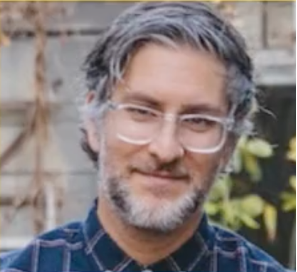
Daniel Gamu
Assistant Professor
daniel.gamu@ubc.ca
Research Areas:
Systems Biology, Exercise & Health

Tania Lam
Professor
604–827–3165
tania.lam@ubc.ca
Research Areas:
Neuromechanical, Systems Biology, Exercise & Health

Michael Koehle
Professor
michael.koehle@ubc.ca
Research Areas:
Systems Biology, Exercise & Health

Cameron Mitchell
Assistant Professor
cameron.mitchell@ubc.ca
Research Areas:
Systems Biology, Exercise & Health

Eli Puterman
Associate Professor
604–822–2854
eli.puterman@ubc.ca
Research Areas:
Psychology of Sport, Physical Activity, Health & Motor Performance, Systems Biology, Exercise & Health

Bill Sheel
Professor
604–822–4459
bill.sheel@ubc.ca
Research Areas:
Systems Biology, Exercise & Health

Darren Warburton
Professor
Scholar, Indigenous Studies in Kinesiology
604–822–4603
darren.warburton@ubc.ca
Research Areas:
Indigenous Studies in Kinesiology,
Systems Biology, Exercise & Health

David Wright
Professor
604–822–3513
david.wright@ubc.ca
Research Areas:
Systems Biology, Exercise & Health

Robert Petrella
Professor, Department of Family Practice, Faculty of Medicine | Associate Member, School of Kinesiology
604-827-6400
robert.petrella@ubc.ca
Research Areas:
Healthy Aging, Exercise as Medicine, Lifestyle Interventions
FAQs
If you have carefully read the FAQs below and don’t find the answer to your questions, you may contact the Graduate Programs Coordinator by email or by phone at 604.822.4641
- What if I don't have the minimum GPA, can I still be accepted?
MA/MSc/PhD: It is possible to be accepted if you don't have the minimum required GPA, if your potential supervisor is willing to accept you into the program. Therefore, your potential supervisor must agree before your application is forwarded to the graduate committee for further approval. Please know the School can only recommend admission and it is the Faculty of Graduate Studies that makes the final decision on admission applications.
MKin: It is possible to be accepted if you don't have the minimum required GPA, if the admissions’ committee for the MKin degree approves your application. Please know the School can only recommend admission and it is the Faculty of Graduate Studies that makes the final decision on admission applications. However, due to the high number of applications for the Mkin program, it is unlikely that the School will accept any applicant who do not have the minimum required GPA.
- How is the GPA for admission calculated? What is the minimum academic requirements?"
If you have Canadian or U.S. academic credentials, the minimum academic requirements for the Masters programs are:
- A minimum Grade Point Average (GPA) of B+ or 76% in upper division (third and fourth year level courses) is required. It does not matter when you took your upper division courses. For example, if they were taken in your second year of the program, they would be included if they are third or fourth year level courses. Calculate your GPA - use this GPA Calculator.
- Also, at least 12 credits of third or fourth year courses in the A grade range (first class), comparative to UBC's grading system of 80% or higher) is required. This is usually 3 or 4 courses.
Note: First and second year courses will NOT be considered to determine your admission eligibility. Please use your university's grading system and DO NOT convert your university's grading system to UBC.
If you have Canadian or U.S. academic credentials, the minimum academic requirements for the PhD programs are:
- A minimum Grade Point Average (GPA) of B+ or 76% in your Master's degree
- A master's degree from an approved institution with clear evidence of research ability or potential
More information on academic requirements for North American credentials can be found at: Minimum Academic Requirements page on the Faculty of Graduate Studies website.
*For International Students, the admission criteria will vary for different countries. Therefore, select the country your academic credentials were acquired from on the international Minimum Academic Requirements page to see the admission criteria.
The admissions committee will decide if your international educational institution is acceptable for admissions into our programs.
More information can be found at the pre-application link.
- Can I apply without a Kinesiology degree or background in kinesiology? How do I know if my educational background is suitable for the graduate program?
Applicants with an undergraduate degree other than Kinesiology will receive serious consideration, particularly if undergraduate program or other experiences provide a strong relationship to Kinesiology. These students may be asked to take additional Kinesiology and/or Kinesiology related courses as part of the graduate degree, in addition to required courses. Course of study is decided in consultation with the proposed supervisor and committee.
MA/MSc/PhD: Applicants may contact potential faculty supervisors to find out if their educational background is suitable for the graduate programs. Faculty members are in the best position to determine if your education/professional background is eligible for our programs, therefore, you are encouraged to contact them.
MKin: The admissions committee will decide if your educational background is suitable for admissions into the program. You may apply directly to the program if you think your educational background is suitable as the committee may consider other significant formal training, relevant professional experience, and/or possession of demonstrable knowledge or expertise that would prepare you adequately for successful study.
- Can I apply when my degree is not completed or if I have courses in progress?
Yes, you may apply even though you have courses in progress or if your degree has not been conferred. By the time you enter our graduate program, your courses must be completed and your degree conferred. You will be required to send the final transcript with your degree conferred to the Graduate Studies Office . It is advisable to upload your latest transcript when you applied. For example, if you are taking courses in the Fall term, you should upload the transcript after all your marks for the Fall term has been posted. If not, we would not be able to consider these courses for your GPA calculation.
- Can I be admitted if I don't have the required IELTS/TOEFL scores?
International students must have the required IELTS/TOEFL scores in order to be admitted. No exceptions will be made unless you completed your post-secondary education at an institution where English is the primary language of instruction. However, if it is not possible to obtain an IELTS/TOEFL test, our Graduate Office may also accept other tests for English language proficiency. See acceptable tests.
DUOLINGO TESTS: Due to COVID-19 restrictions, our Graduate Office may accept Duolingo Tests from students in countries where no other English proficiency test is available.
Until IELTS and/or TOEFL testing centres re-open, the Duolingo English Test (DET) will be accepted. Official scores must be submitted to graduate.sas@ubc.ca.
Overall required score: 125
Video and writing sample should also demonstrate a strong command of English language.
For more information, please: https://www.grad.ubc.ca/country/iran
- Can I be conditionally admitted if I don't have the required IELTS/TOEFL scores?
International students may be conditionally admitted if their confirmed supervisor agrees to this arrangement. Students would be required to take English courses at UBC English Language Institute. A student must achieve a 75% overall assessment at the 600 level of the UBC ELI English for Academic Purposes Program (or equivalent assessment level in another approved program) to meet the terms of the Conditional Admission Program.
- Do I need to provide the IELTS/TOEFL test if the educational institutional where I completed my degree has English as the primary language of instruction?
International students who have completed their education from a university in which English is the primary language of instruction are not required to provide IELTS/TOEFL tests. However, they may be asked to provide proof that the primary language of instruction is in English.
- Can my application fees be waived?
No, the School will not waive any application fees. Applicants must pay for this fee when they apply.
- How much are the tuition fees and students fees?
The UBC Calendar provides information regarding current tuition fees for the School’s graduate programs. All students are assessed fees as full-time students and charged on a term basis plus student fees.
All graduate programs (Master and PhD) are assessed tuition fees per term, and not by the number of course(s). There are 3 terms per year.
Students holding UBC scholarships will have their tuition fees deducted directly from scholarship payments.
Mkin Quick Facts and Tuition Fees
MA Quick Facts and Tuition Fees
MSc Quick Facts and Tuition Fees
PhD Quick Facts and Tuition Fees
- Are any GRE tests required?
No, we do not require any GRE tests. More information on admission requirements can be found on the pre-application procedure.
- How do I find a potential supervisor?
MA/MSc/PhD: You may use the Supervision Enquiry form (type "Kinesiology" in the program field and click on faculty profile) to include a brief outline of your academic background, why you are interested in working with the faculty member, and what experience you could bring to the department. It is the applicant's responsibility to reach out to potential supervisors to find out if their area of interest and academic background are a good fit with the faculty member's area of research. The graduate programs operate on a mentorship model and it is important that both parties are well matched for each other to establish a successful academic groundwork.
MKin: No supervisor is required. Interested applicants may apply directly to the Mkin program.
- What if I can't find a potential supervisor?
MA/MSc/PhD: You must find a faculty member willing to supervise you, otherwise you will NOT be admitted into any of these graduate programs. Do not submit an application without confirming a potential supervisor for the research-based programs. Application fees are non-refundable.
MKin: No supervisor is required. Interested applicants may apply directly to the Mkin program.
- What if the supervisor I want to work with is not available?
You may ask another faculty member to supervise you from the potential supervisor site. Or you may submit your application the following year should he/she be available.
- Is there a limit to the number of potential supervisors I may contact?
No, you may contact as many faculty members that you are interested in working with. However, for research-based programs, at least one of them must be willing to supervise you before you proceed with the application form.
- Can I submit the admission application before I find a faculty member willing to supervise me in the program?
Only applications for the MKin program will be accepted without a faculty supervisor. For all other research-based graduate programs, please DO NOT submit your admission application before you find a faculty member willing to accept you into the program. If you do not have a confirmed supervisor, your application will be considered incomplete and you will not be accepted. Application fees are non-refundable.
- What kind of references would you require?
MA/MSc/PhD: We require academic references for research-based programs, however, we will accept professional references as well. Please know that in order to be rated highly for awards, all your references must be academic based.
- Do you have any advice or tips on contacting a potential supervisor?
Yes, we have a list of do's and don'ts. You are encouraged to follow these guidelines.
- May I submit my admission application after the deadline?
MA/MSc/PhD: Yes, you may submit your application after the admission deadline if you have a faculty member willing to supervise you. However, in order to be considered for entrance awards, you must submit your application by the admission deadline.
MKin Students can only apply for the September program start date by the January application deadline
* DUE TO THE HIGH DEMAND AND THE LARGE NUMBER OF APPLICATIONS FOR THE MKIN PROGRAM, WE WILL REACH OUR MAXIMUM CAPACITY FOR STUDENT INTAKES FOR THE SEPTEMBER START DATE AND CANNOT ACCEPT ANY STUDENTS FOR THE JANUARY INTAKE.
- Can I submit/upload my documents (statement of purpose, CV) after I submit my application?
Yes, you may upload and/or change your supporting documents after you submit your admission application. The documents do not need to be uploaded at the time you applied. However, all documents must be submitted by the application deadline. If you require any assistance, please contact kin.gradsec@ubc.ca
**It is advisable to upload copies of your transcripts after your grades are posted for your most current term, which is usually the Fall term for applicants applying for the January deadline for the September admission start date.
- Can I upload "unofficial" copies of my transcripts for my admission application?
No. Only "official" copies of your transcripts with the grading key/legend should be uploaded for your admission application. Unofficial transcripts will not be accepted or reviewed and your application is considered incomplete until we receive copies of your official transcripts. More information on transcript requirements can be found on our formal application procedures.
- Do I need to upload official copies of my transcripts from educational institutions where I went on an exchange program and/or received transfer credits only?
Yes. You must upload "official" copies of your transcripts with the grading key/legend from educational institutions where you went on exchange and/or received transfer credits. Even if your primary degree transcript indicates your exchange and/or transfer credits on it, we require the transcripts from these educational institutions. Your application is considered incomplete until we receive copies of all official transcripts from all your postsecondary institutions. More information on transcript requirements can be found on our formal application procedures.
- When will students be notified if they are admitted into the program? "What terms can students be admitted into the program?"
Students who apply by the January admission application deadline will be notified by the end of April whether or not they have been accepted into the program.
There are two terms (Fall and Winter) that students can be admitted into the graduate programs. Please see application deadlines for further information.
- Can I be admitted in the summer term?
We do not usually accept students in the summer term as there are fewer course offerings at this time and many faculty are engaged in research and professional development activities which take them away from the classroom. Many students spend the summer months working on their thesis or directed studies/fieldwork courses.
- Can I apply for part-time studies in the Master's and PhD program?
Although it is strongly recommended for all students to undertake full-time study, the Master's and PhD program may also be undertaken on a part-time basis, if the proposed supervisor is in agreement with this arrangement or the Mkin committee, in the case of Mkin students. Students fees are assessed on a term-basis, regardless of the number of courses enrolled for that term.
- Are there awards and funding for graduate students?
Yes, there are various types of awards and funding for graduate students in our School. See awards section for more information.
- Would I become a certified kinesiologist or physiologist upon completion?
Currently, the School of Kinesiology does not certify kinesiologists or physiologists, nor are we formally affiliated with any certifying agencies. You will need to contact the agency responsible for these certifications and find out what courses/program you need in order to qualify. However, the School is working closely with the BC Association of Kinesiologists (BCAK) to make sure our programs lead the way in embuing knowledge and skills necessary to practice and to comply with any potential accreditation which may come into effect as kinesiology becomes recognized as a regulated health profession.
- I am interested in physical therapy and/or rehabilitation science.
We are transitioning our program to offer a Clinical Kinesiology stream and courses will be offered relevant to Clinical Kinesiology (as of September 2020). If you are interested in physical therapy and/or rehabilitation science, please contact UBC's Physical Therapy department or UBC's Rehabilitation Science department. The School is not affiliated with the Physical Therapy or Rehabilitation Science departments, nor do we provide training for physical therapists.
- What streams are available in the Mkin program?
We are very pleased to be moving towards a two stream MKin program - Performance and Coaching Science and Clinical Kinesiology. Although there are no formal streams as yet, from September 2020 we are offering course offerings relevant to both career streams. No supervisor is required for admission to the program.
Other than the Coaching Science and Clinical Kinesiology streams, there are limited faculty members who are willing to accept students in the course-based Mkin program as research and a final thesis is usually required. However, you are welcome to contact individual faculty members and find out if they are willing to supervise you in their area of expertise in a course-based Mkin program.
- Can I do any of your programs online?
Our graduate degree programs required you to be on-campus to attend classes and/or conduct research. However, due to the current COVID-19 situation, we may be offering some of our courses online. Please check Course Scheduling for information on the current course offerings.
The only permanent online programs are the HPCTL/MHPCTL programs, available to elite coaches with extensive experience in the field.
- Are there resources to assist with the application process?
The Faculty of Graduate Studies has produced an informative guide for prospective students with tips and practical advice on preparing and applying for graduate programs.
See what some of our graduate school alumni are doing now!
Jasmine Gill
Jasmine Gill is part of the UBC Fall Class of 2021 and will graduate with a Master’s degree in Kinesiology (MKin). She took courses in both Performance Sciences and Clinical Kinesiology streams, focusing on the prevention and management of sports injuries and performance planning. Jasmine has worked throughout her studies with youth, ages 6 and […]
Graduating Student Spotlight: Jamie Hawke
Congratulations to Jamie Hawke, who will join the UBC Class of 2021 this fall, with her MA in Kinesiology. Her graduate research combines dance education and dance science by using interpretive methodologies to explore participant experiences. For her master’s thesis, she examined what dance educators experience when helping pre-professional ballet dancers develop their dance skills. […]
Watson, Laura
Graduating year: 2006, 2018
Degree: BHK, MHPCTL
Laura Watson is a High Performance Coaching Advisor with Own the Podium where she is responsible for implementing the Coaching Enhancement Program. This program aims to support Canada’s coaches in the pursuit of world class coaching excellence in Olympic and Paralympic sport.
Kopecky, Igor
Graduating year: 2019
Degree: MHPCTL
Igor Kopecky has been a coach and athlete for the past 35 years, and is currently the technical director for BC Diving and the South Surrey White Rock Diving Club. Igor has coached at the World Cup, World Series, South American Championships, Commonwealth Games, World Junior Championships and the Pan Am Games.
Bahrami, Ben
Graduating year: 2013
Degree: MKin
Ben Bahrami, a Strength and Conditioning Coach for McMaster University. He is grateful that the UBC Masters of Kinesiology allowed him to focus on his passion and believes that although his knowledge of human physiology and biomechanics improved significantly, the most valuable thing he learned was how to establish a culture as a coach.
MSc and PhD opportunities in exercise physiology at the Centre for Heart Lung Innovation at St. Paul’s Hospital
The Cardiopulmonary Exercise Physiology (CPEP) Laboratory is recruiting new students interested in pursuing graduate studies in human exercise physiology. The CPEP laboratory is located within the world renowned UBC Centre for Heart Lung Innovation at St. Paul’s Hospital. The lab studies the physiological mechanisms and management of exercise limitation and breathlessness across the full spectrum of health and fitness, including elite athletes to those suffering from chronic cardiorespiratory diseases. Students will work under the mentorship of Dr. Jordan Guenette and will collaborate with physicians, scientists, and graduate students from multiple institutions around the world. The following links provide more details about these exciting opportunities:
- MSc position: https://www.grad.ubc.ca/ad/55184
- PhD position: https://www.grad.ubc.ca/ad/55188
